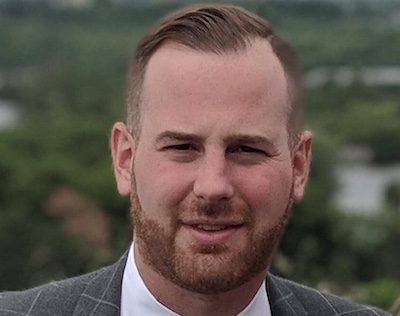Editor Gordon Rempel on the Music of Editing
Gordon Rempel sees parallels between the approach he takes editing film and television and his love of making music. With more than two decades of experience in both fields, he would know.
“I actually have a musical background. I’ve been playing in bands continuously since I was a teenager. Music takes a lot of the same parts of your brain as editing does: it’s all rhythm, tempo, and pacing. And finding that accent point. Putting a movie or TV show together is not all that dissimilar to putting together a song or piece of music.”
As a student in the Film and Television program at the British Columbia Institute of Technology initially focused on the camera, a back injury and the weight of equipment led him to discover the editing suite. With great interest, he took weeks to immerse himself and learn the ropes. His next job gave him the opportunity to teach himself on the night shift, followed by a position as an in-house editor in 1997 and he’s been cutting film and TV ever since.
“It’s really putting the pieces together like a puzzle, the difference being it’s putting together the puzzle without the box with the picture on it telling you what it’s supposed to look like.”
Having worked with an assortment of talented directors and producers, including John Landis, Norma Bailey, and Tim Matheson to name a few, he’s realized that the key to successful and fruitful creative partnerships is building relationships.
“There’s a sense of trust that you have to develop with the director. Sometimes, when it’s the first time working together, it can be difficult because you don’t actually see a lot of them until they finish shooting. When you’re working together, you’re trying to speak the same language, but every director has a different accent. You have to learn their accent and learn their lingo as you go.”
For Gordon, returning to those relationships where it clicks results in real collaboration and a cohesive product onscreen.
“You develop a rapport where they [the director] can do things with the camera that I’m going to anticipate in the edit suite. It’s so important to develop that trust and communication.”
His most recent project has him lending his skills to Upside-Down Magic, a Disney production that he describes with enthusiasm.
“It’s great. The kids are great actors, the story and idea are great, it’s such an inclusive cast, it’s been awesome so far.”
A movie for the Disney Channel, Upside-Down Magic isn’t the first time he’s had the opportunity to join a Walt Disney Company endeavor; he also teamed with them for Gabby Duran & The Unsittables and MechX-4. This continues to be a positive experience:
“You really do have their support when you’re working with them.”
Editing the film and the Disney TV series has allowed him an opportunity to return to the site of his alma mater: British Columbia, Canada. What makes coming back to where he went to school special?
“It’s the whole province. Upside-Down Magic is not shot only in Vancouver, but they’re working in some amazing locations on Vancouver Island as well. Places that just don’t look like anywhere else. They’ve found some truly incredible locations in B.C.; some of the forests that they’ve shot are so beautiful to see, it could’ve been designed by Disney itself.”
Scrolling through his collection of creative output, it’s clear he is unconstrained by genre or medium, and Gordon allows music to be the lens through which he sees his role.
“My first real big project was Andromeda, a science-fiction and action show. Action sequences are a lot of fun to do. I just did a martial arts film a few years ago and it was amazing to see the choreography that goes into that. It really becomes like putting together a dance piece. It all comes back to music. The horror, the action, the sci-fi: it’s all about tension and release, rhythm, pacing, and the choreography.”
As evidence of his cross-genre success and musicality, he’s able to proudly claim a Leo award from the Motion Picture Arts & Sciences Foundation of British Columbia for his editing on the experimental dance performance piece Violet.
The variety and longevity of his career have also afforded him the pleasure and privilege of learning alongside influential figures in his field.
“I’ve worked with some amazing editors along the way and learned from them through personal experience in the edit suite…people that I’ve been able to sit with and look at a scene and discuss what’s going on in the camera; what’s going on with the characters on the screen more than anything else. The editors that I really admire most are the ones who can get past what camera lens or angle is being used, get past the technicality of a shot, the ones that don’t just concentrate on the frame rate. People who talk of the characters and what is happening on the screen. It’s about getting past the glass and making yourself a part of it.”
Editor, producer, musician, and collaborator, Gordon wears many hats. But whether it’s a science-fiction show, a short film on dance, a Disney production or making music, he finds the through-line to be simple:
“It’s creativity all around.”
Upside-Down Magic premieres on the Disney Channel in 2020.
Featured image: Gordon Rempel.



